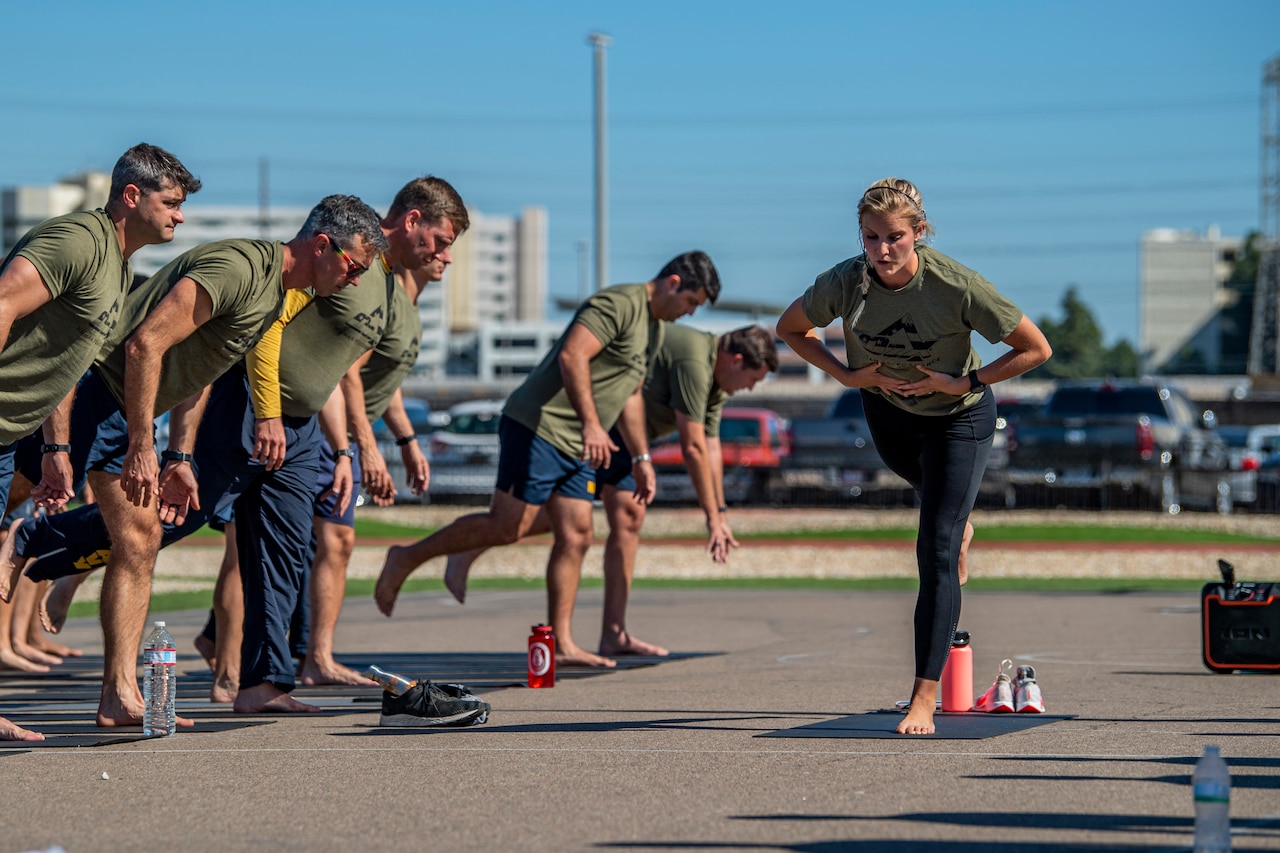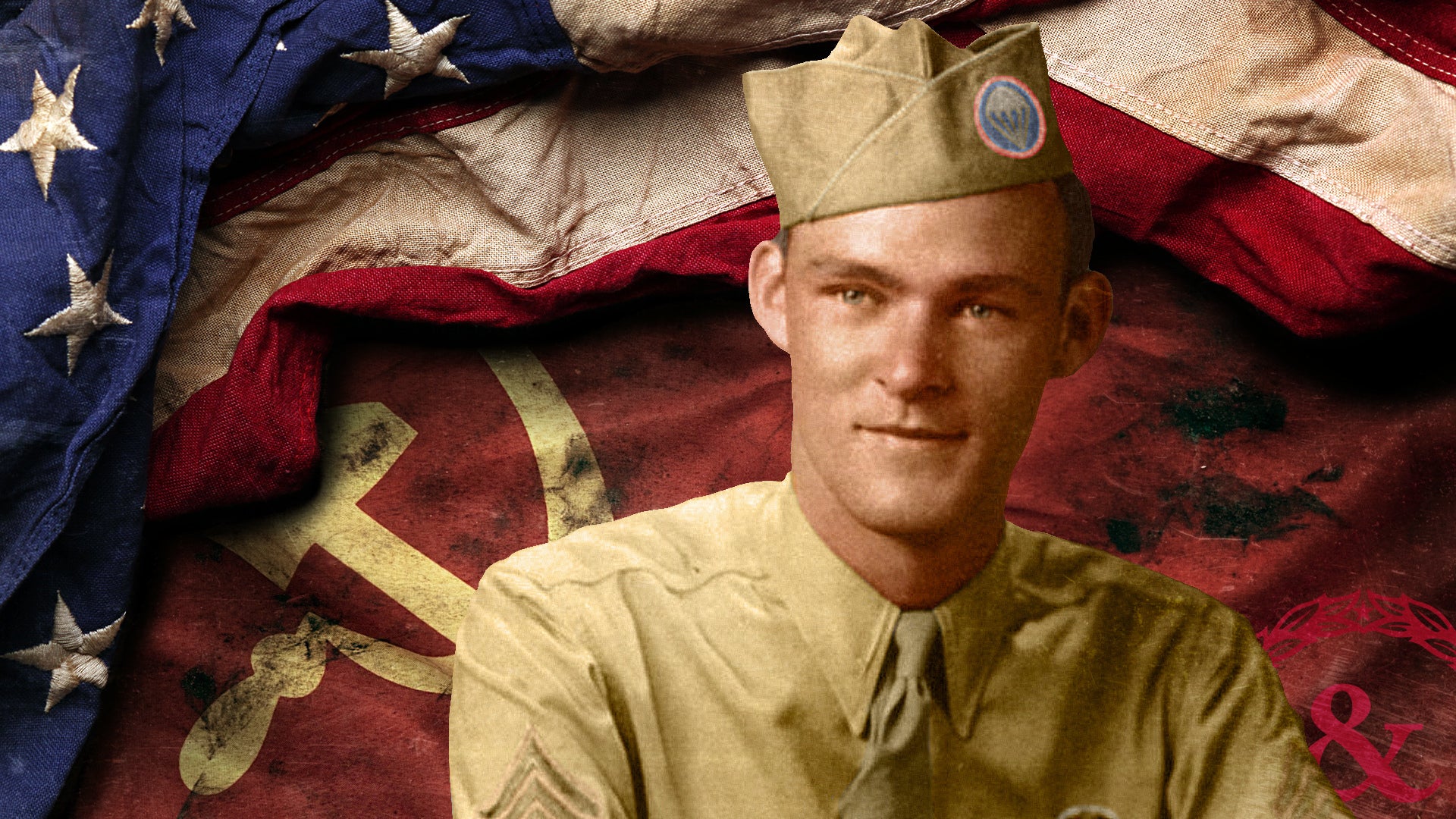
[ad_1]
Life in the military is no bed of roses, but the services are putting in place an innovative program designed to give service members new tools to handle the stress of military life.
The program aims to help service members be physically and mentally ready to handle the challenges of military service.
The company and the program are known universally as O2X, which stands for Optimize to the X, with X being the goal. The company was founded by special operations veterans, first responders and elite athletes, said Adam La Reau, a co-founder and managing partner of O2X.
“We implement human performance programs, performance optimization programs into the tactical community,” said La Reau, who was a Navy SEAL. “We tackle occupational challenges within these tactical communities, things like sleep disruption, mental health, physical aspects, injuries — essentially, the things that impact the readiness, resilience, and sometimes even the retention of these units … or DOD as a whole.”
In the Navy, the emphasis on human performance came from a study following the 2017 crashes of the USS Fitzgerald and USS John S. McCain. The crashes killed 17 sailors. The study found the crews were overtaxed, fatigued and stressed.
The service turned to O2X to look at these human factors and develop a program to address some of these specific problems within the surface warfare community. “We bring on-site specialists that come with a program and a methodology,” La Reau said in an interview. “We do skills-based training and education. The education is … pretty critical for people to be self-aware about their own individual performance.”
The company has tested the program with crews aboard the USS Manchester, a littoral combat ship based in San Diego. They’re getting ready to expand the program to work with the crews of the destroyer USS Preble (DDG-88) and the littoral combat ships USS Mobile and USS Gabby Giffords beginning this month.
The company is based in Scituate, Massachusetts, and works with DOD components and fire and police departments around the nation.
The program treats service members like elite athletes. Elite athletes receive training not just to perform a physical feat, but to have the mental toughness and resilience to perform under pressure, La Reau said. Elite athletes follow a training regimen to ensure they have the right foods, the right amount of sleep, the right exercise regimen and the determination and willingness to follow the regimen. “The question we always ask is how do we give people the skill sets in order to persevere through challenges and emerge not only successful, but stronger,” he said.
The company tailors each program to the situation. They’re quite aware that what may work for an officer at a police department would not help a sailor aboard a destroyer. La Reau said the company has hundreds of specialists to teach personnel and to serve as “reach-back” assets for those deployed.
The program requires buy-in from the commanders and a commitment to ensure there is every effort to let service members participate no matter where they are. “The program has to be portable,” LaReau said. “It has to adapt to the changing situations people find themselves in, whether they are deployed, on a ship at sea, or in a shipyard undergoing maintenance.”
The company has another contract with the Massachusetts National Guard, and that also illustrates the need for an adaptable program. Guardsmen, of course, are from all over the state and have civilian jobs in addition to their military duties. O2X tailored the program for the 5,500 members of the Guard and had the staff to “scale” the effort.
To really capitalize on the program,, it needs to be part of every training event starting at entry level training and progressing through the ranks of both enlisted and officer ranks, La Reau said.
“We need to look at human performance as a program, not as a choose your own adventure,” he said. “You have to understand performance and all the factors that can affect you. Sustainment training needs to continue for the duration of your career. Truthfully, science changes, things adapt, people find better ways, and our operating environment will continue to adapt and change.”
“But the one factor is going to be the same … is that individual,” he continued. “We need to continue to adapt our program and continue to adapt it to meet the needs of the next conflict.”
[ad_2]
Source link

:quality(70)/cloudfront-us-east-1.images.arcpublishing.com/mco/T56ADX64ANDYNP5MWRKCULXRZA.jpg)



:quality(70)/cloudfront-us-east-1.images.arcpublishing.com/mco/QBYJTGYCQBHSVITAL32RAO7HAA.jpg)




:quality(70)/cloudfront-us-east-1.images.arcpublishing.com/mco/YVREBMCGTNFNTI6PSBKVQDR7CU.jpg)









